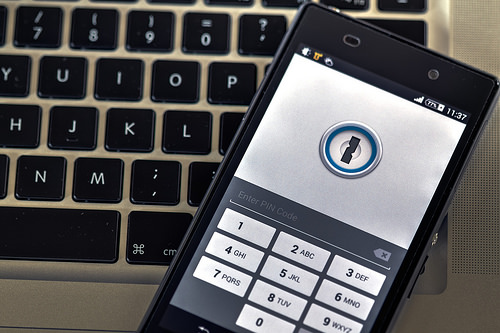A recent study from the National Institute of Standards and Technology (NIST) finds that online users can suffer from online Security Fatigue. What? Why? Not me! I’m always safe online. Sure. We’ve reached a point in history that if you are using a computer to do things online, you are concerned about hacking, viruses or other malicious actors that may steal your data or worse, your hard earned cash. Let’s talk Security Fatigue and some methods to rid ourselves of those security worries while doing things online.
What is Online Security Fatigue?
Most people have a limit to the amount of information they can process, store and hold onto over a given period of time and when bombarded with terrible news of hacks, exploits, viruses and other threats online…they can experience a general feeling of panic, paranoia or loss of control: Security fatigue. Completely legitimate and ultimately crappy leading to a “cooling effect” when it comes to your online safety. It can set in quickly after seeing article after article and data breach after breach.
To add insult to injury, software developers and user experience folks will knee jerk react to bugs, holes and areas of their software that can (or may) be breached. Which will leave you, the user, remembering a password or two, tethering your phone to 2-factor security, a verified email, security questions, recaptchas, etc. The list goes on and on of things you must to do just use that stupid, cat photo matching app.
You inherently trust companies, banks and government with your personal data, only to find out they’ve been hacked at scale. Millions upon millions of records containing your personal [and confidential] data is traded and used without your permission in the fibers of the online world.
Why do these threats exist?
Money. Plain and simple. These coordinated attacks have grown from some nerd in his parents basement to multi-national crime organizations and syndicates. Hell, there are some countries that would not have much of a GDP if it wasn’t for online identity theft, money laundering or illicit use of large databases of personal data.
And frankly, these acts of malice and attacks are becoming bigger, more sophisticated and reoccurring than ever before.
How to upgrade your safety online?
The number one thing that you can do is to pay attention. If you treat your internet browsing habits like you would walking down a seedy back alley of a major US city, you’ll be in a much better place and aware of your surroundings. Be sure to think about and review every link you click.
Also, make sure that you understand and KNOW who and how you are sharing your personal information. Target and BestBusy online stores will – at least – budget for IT Security, whereas, “Dave’s discount online outlet of things,” likely, does not. “Dave,” will likely just collapse his company if he’s hacked.
Get yourself a password management system or software and give yourself a different password for each website or services that you visit. It is a small amount of work with huge dividends in online safety and security.
How to save your sanity in this new and crazy online world?
I like to think the comments of comedian Tom Papa help to maintain your sanity and contain paranoia when he says, “Your job isn’t to watch the news.” Tom usually follows in his dialog by [paraphrasing] to get a little bit of news and go about your day. We live in a constant, produced 24-hour news cycle where every piece of news is breaking, attached with 16 panelists of nothing-talk all nodding their heads.
Online cyber security is no different and you can feel really overwhelmed and scared while online. Target was hacked. Equifax was hacked. State-level voter files hacked. Banks hacked. Local doctors office hacked. It is going to happen, its just a matter of when.
Finally…
The NIST report states that users with security fatigue will make poor decisions or decide that online security is a complete waste of time. Those two ideals can have very important and ill effects if [and when] you practice poor security online. Not much can be done to secure your online experience 100% without having an unlimited budget but you can try and forget about the causes and effects of security fatigue, make sound decisions and keep yourself safe online.
Photo by Ervins Strauhmanis 

Leave a Reply